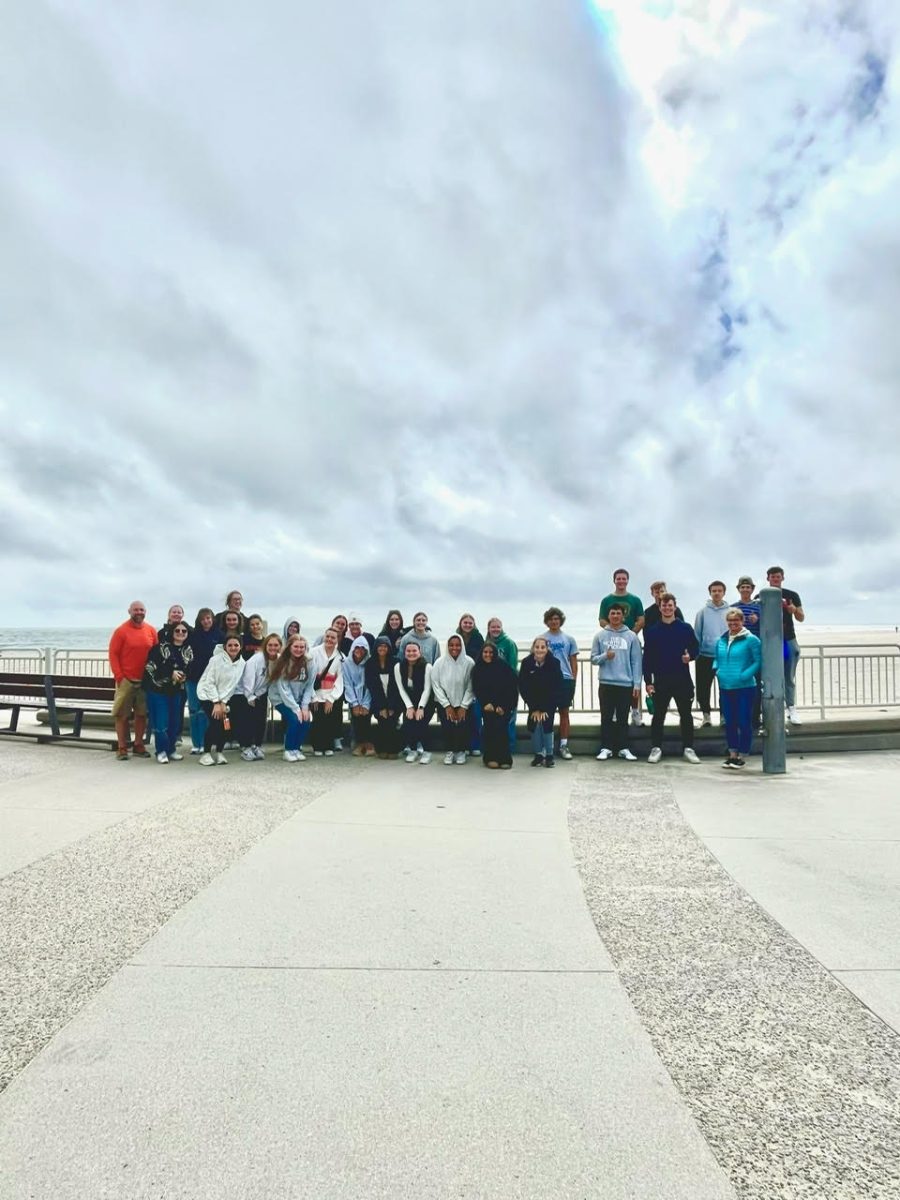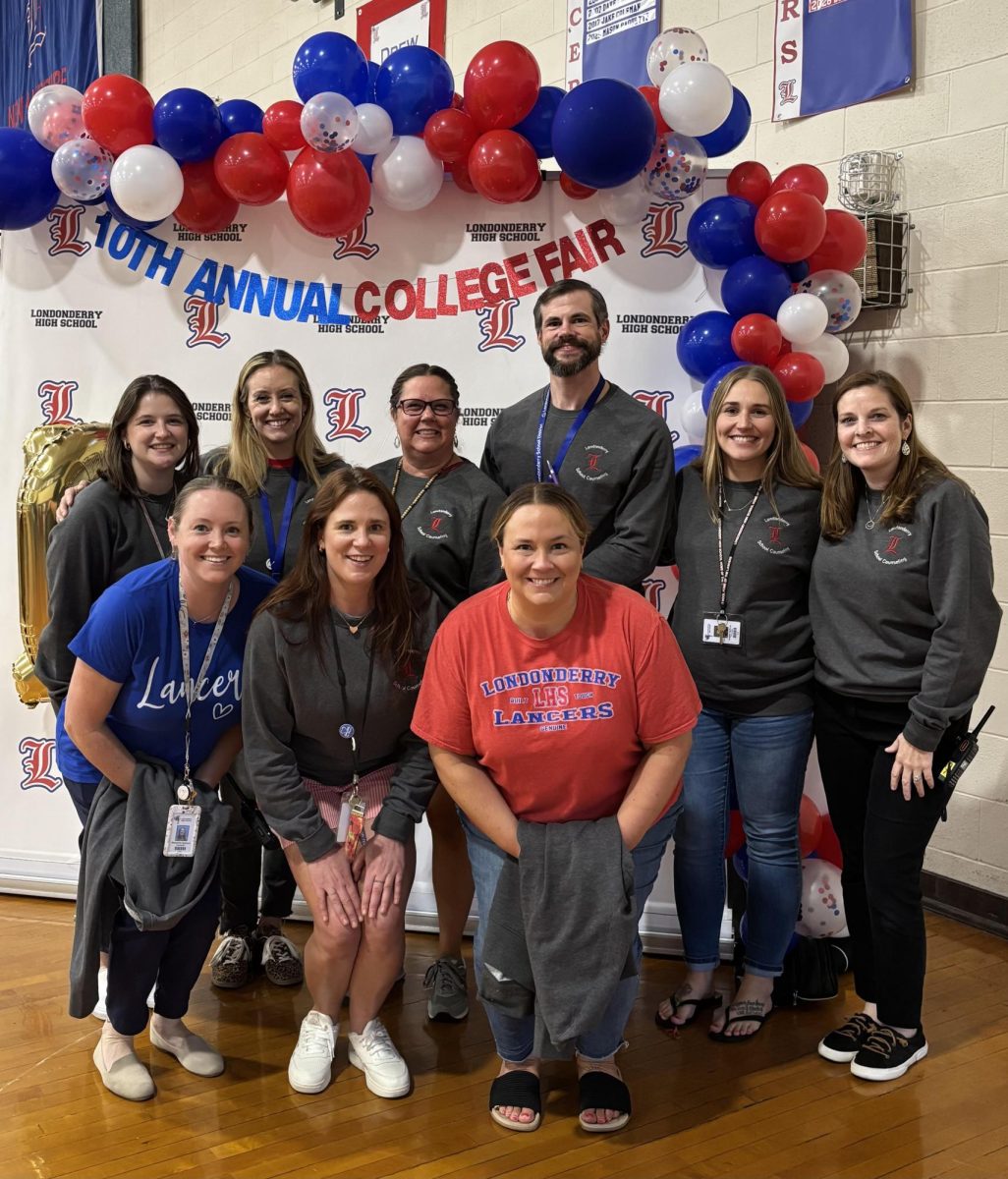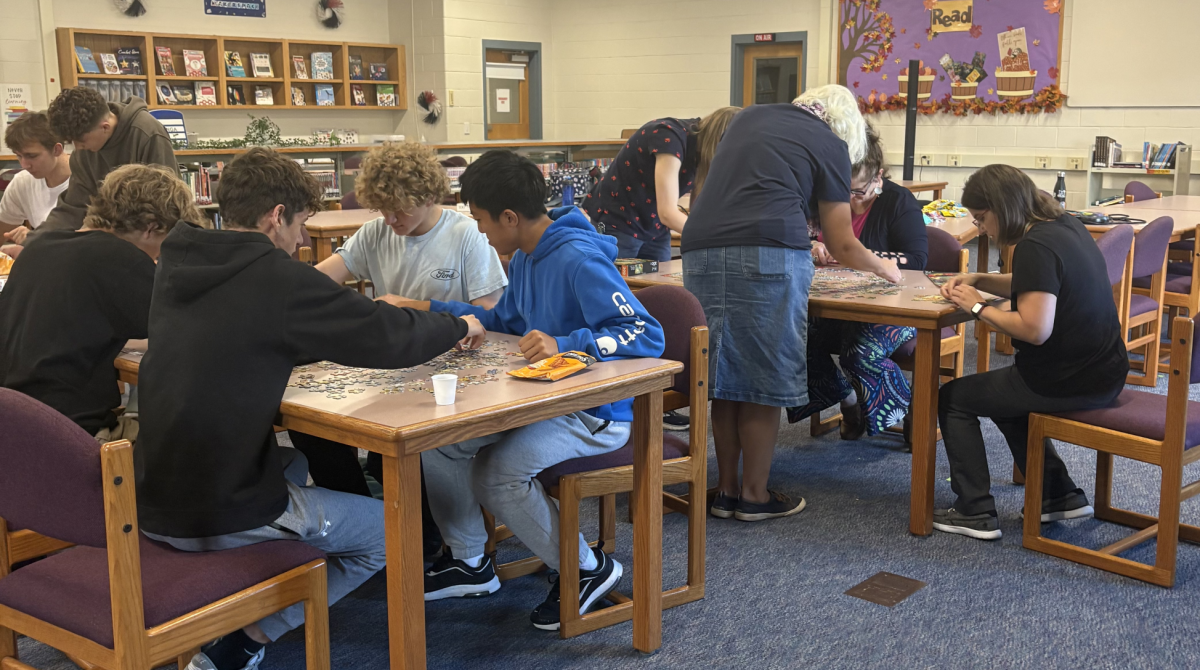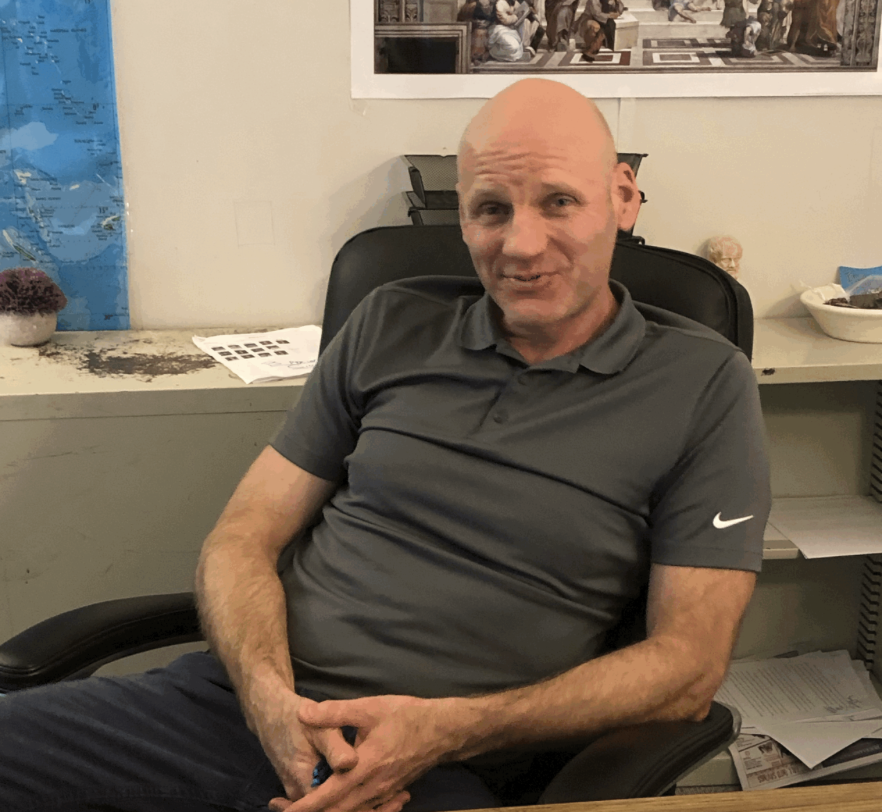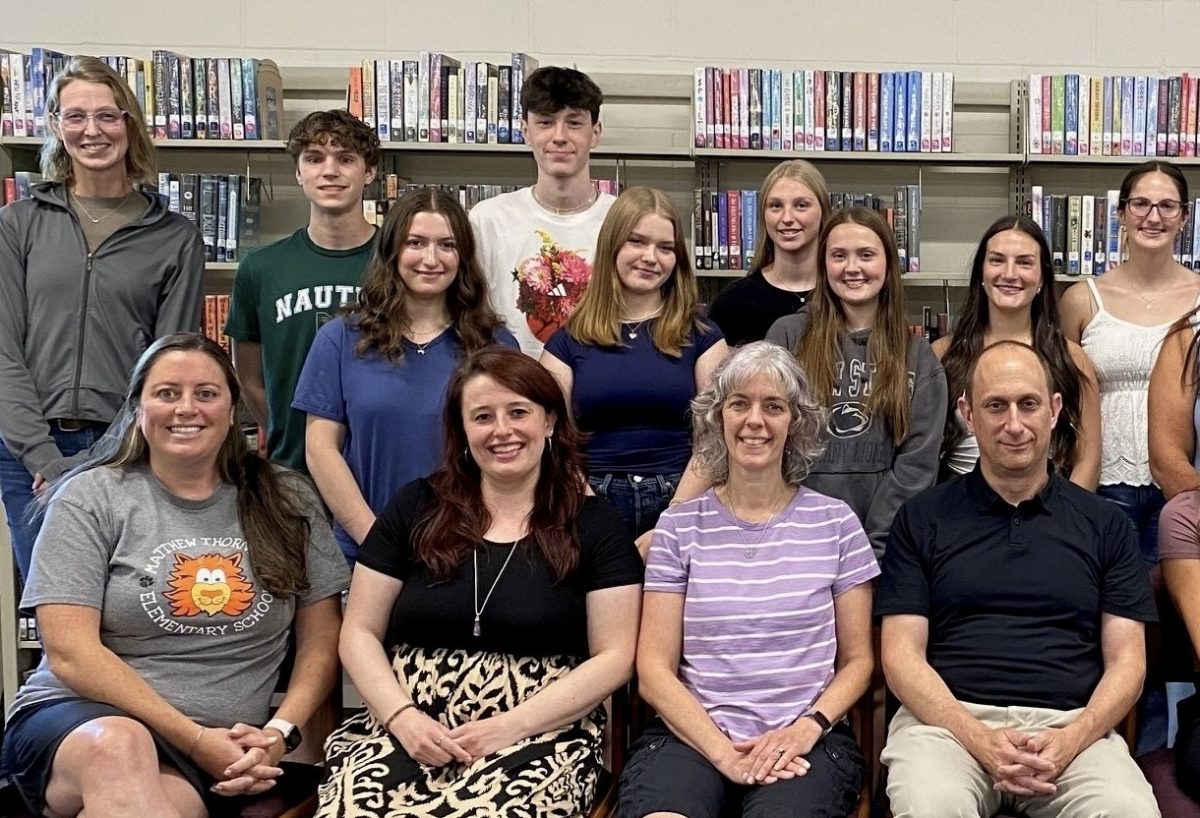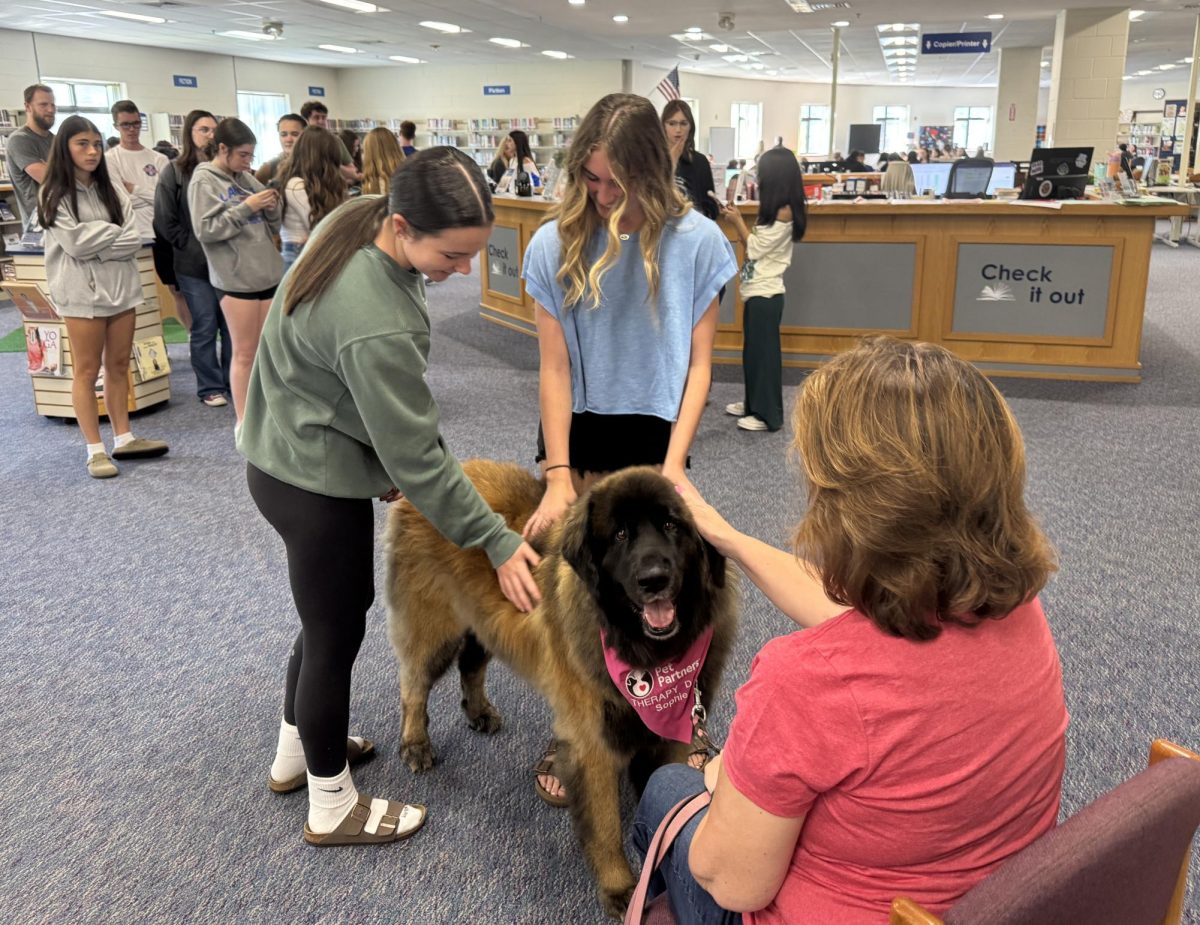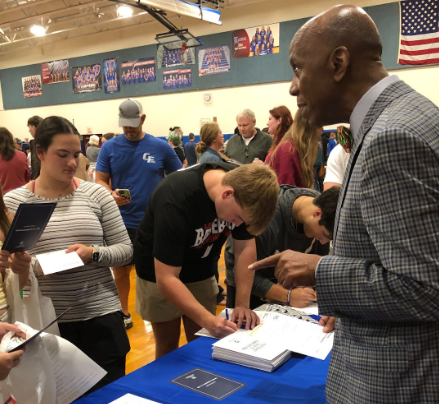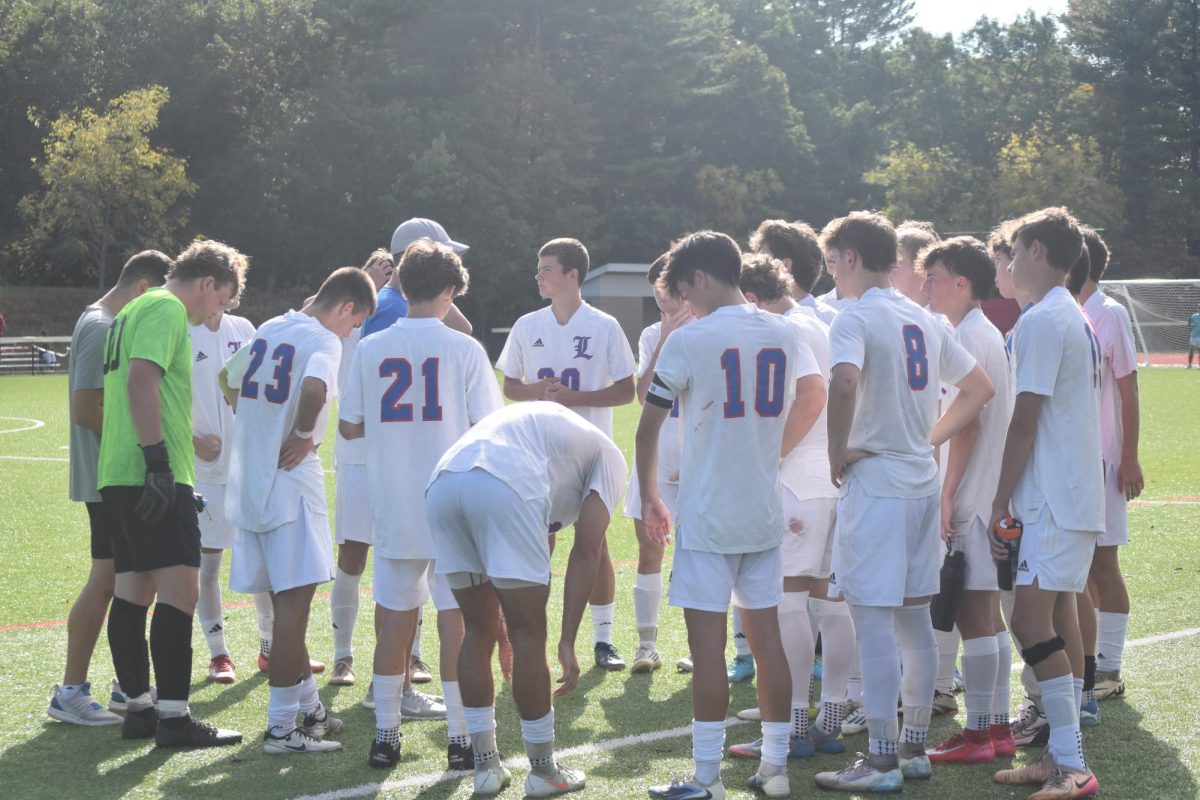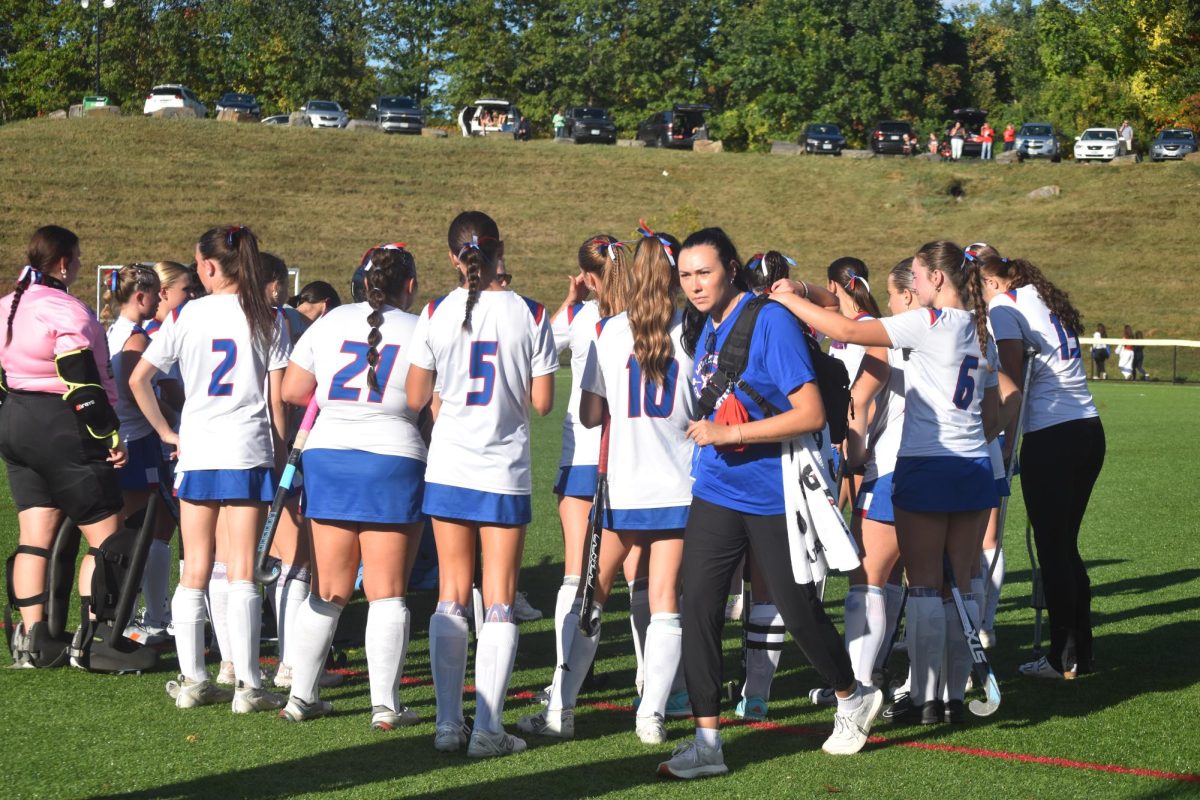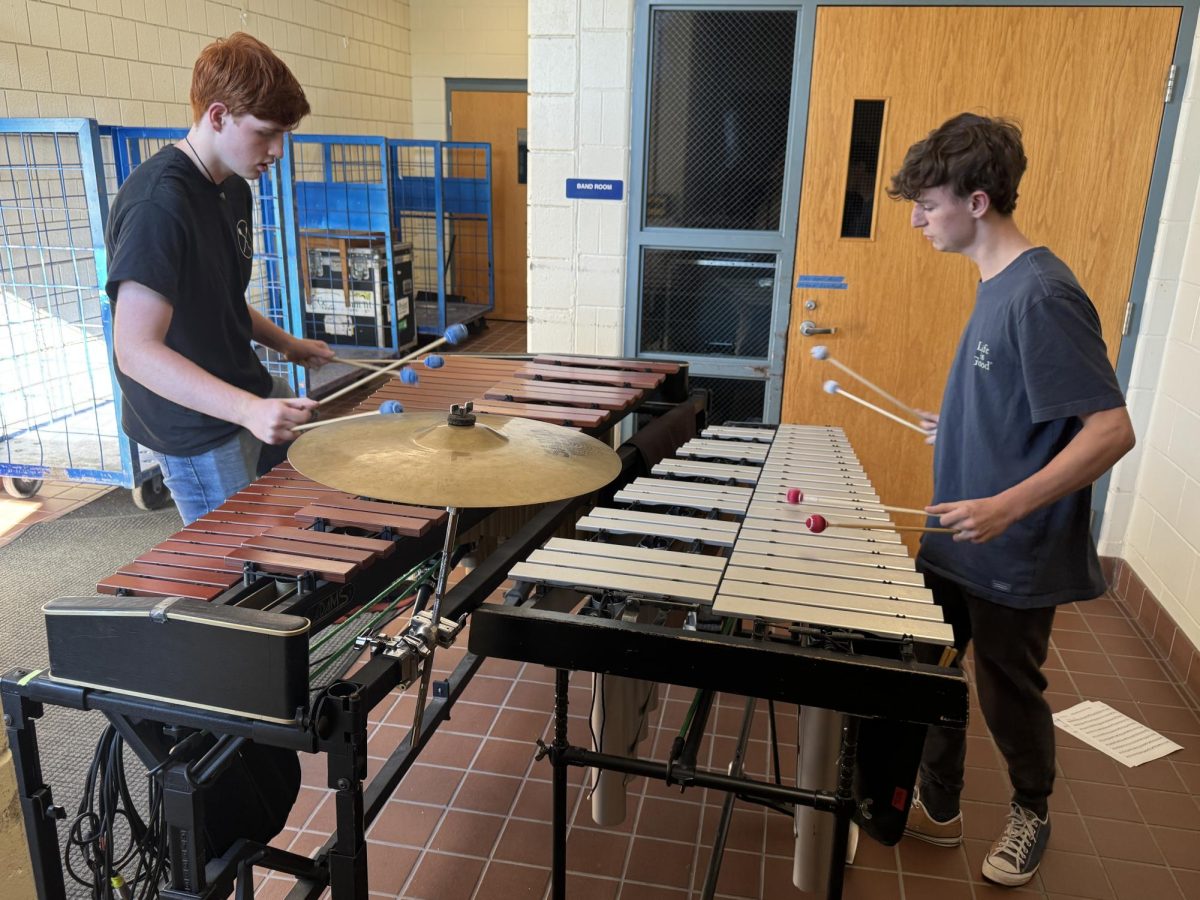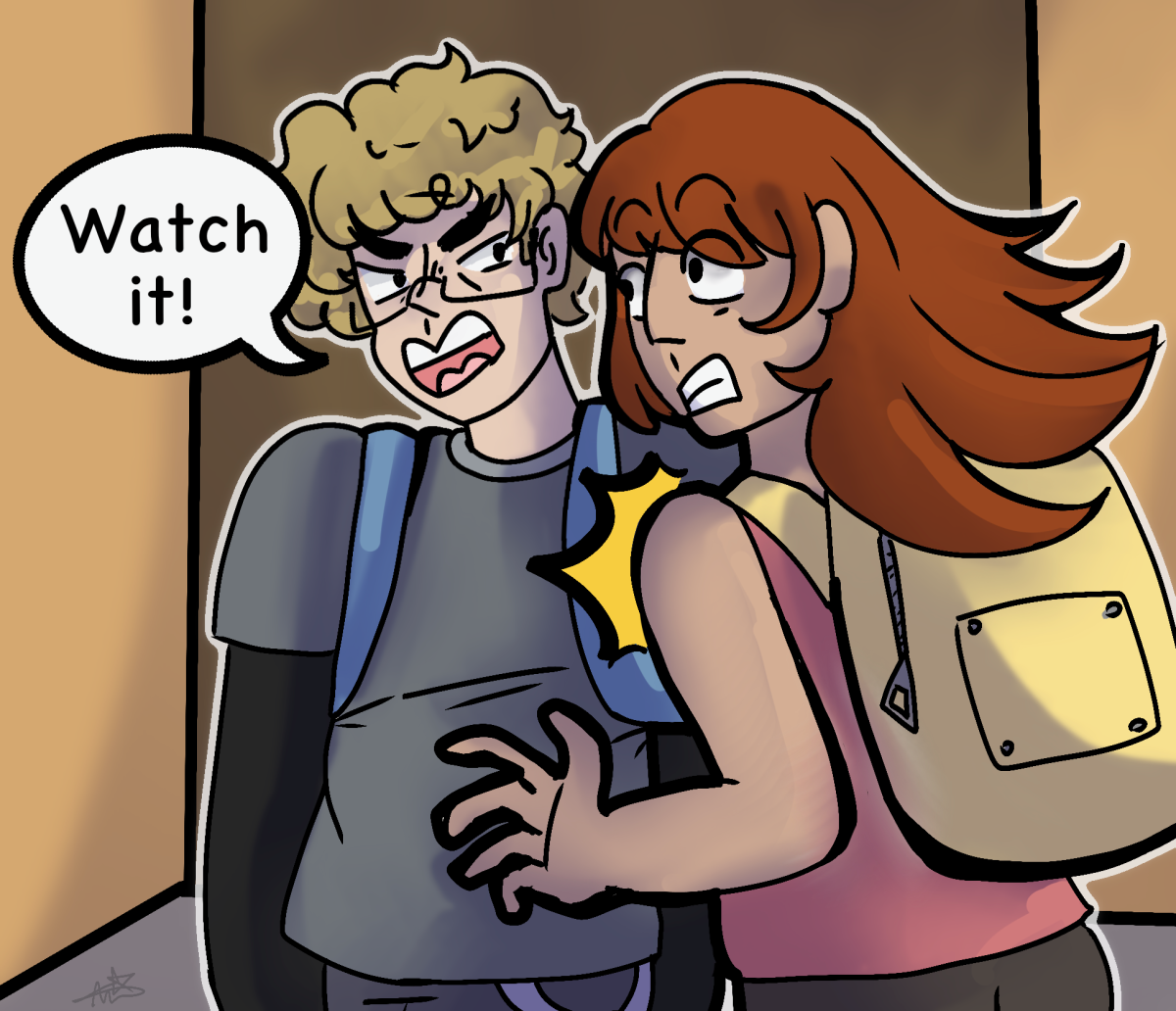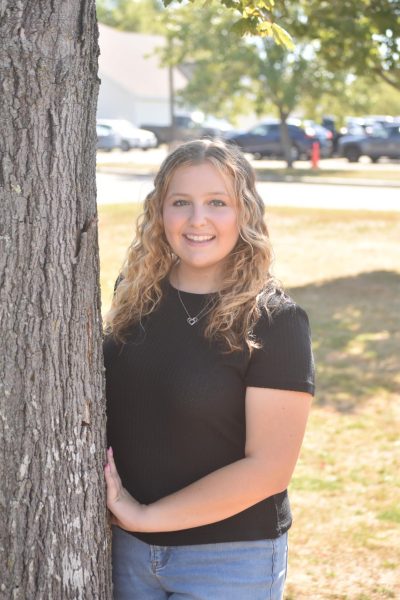Stepping away from their textbooks for the day, APES students spent their time collecting debris off Hampton Beach. According to APES teacher Daniel Grant, 1,561 pieces of debris were collected weighing 19.71 pounds.
“I think it was successful for the students to see the amount of debris [on the beach]– and this is from one section of one beach on a Tuesday in October,” Grant said.
This trip has been a yearly event since Grant started teaching this class in 2013. Each year students collect debris, log the type and amount of debris, weigh each debris bag, and reflect on their observations.
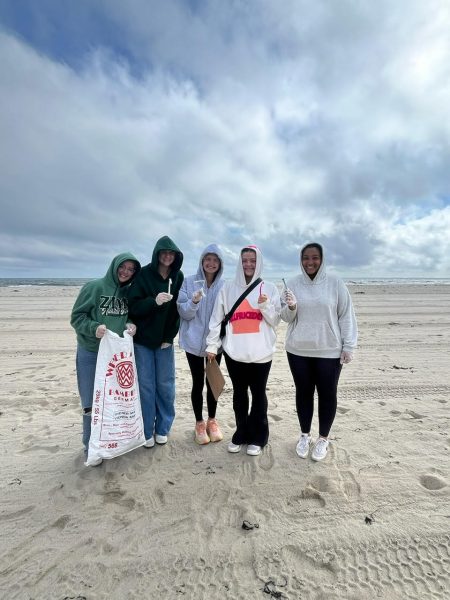
Photo used with permission by Daniel Grant
“I was impressed by the students’ effort and interest in collecting and logging the debris. They did an awesome job,” Grant said. “I think they are always surprised by the number of items they find.”
Senior Maddie Tufts was one of the students who participated in the cleanup effort and thought the trip was a “great experience.”
“We were able to get out of school for the day, have fun with each other, and help pick up almost 20 pounds of trash from the beach,” Tufts said.
The top five items collected were cigarette butts (564), wrappers (195), plastic bottle caps (82), other unknown plastic larger than 10 cm (63), and plastic pieces smaller than 5 mm (58).
“I wanted them to see for themselves what we learn in the classroom and the impact–both positive and negative–we have on the system we live in,” Grant said. “The main goal is to see both qualitatively and quantitatively the amount of marine debris that enters into our aquatic system.”
It was a shock to a lot of Grant’s students to be able to see the amount of debris left by humans.
“The biggest thing I learned from this field trip was really how much trash is left behind at places like the beach,” Tufts said. “It shows we need to take better care of the environment.”
The cleanup is used throughout the course as a reference point of the impact that humans have on the environment.
“I hope that they will see how we as a population contribute debris to the marine system and the impact that can have on the system,” Grant said. “I hope that they will see that by taking some time they can help to reverse the negative impact by removing the debris from the environment.”
But why not just keep kids in the classroom and lecture them about the negative effects of marine debris?
“I think the best learning experiences take place outside of the classroom,” Grant said. “Learning is all about doing. The best teachers are experiences in my opinion.”
APES partnered with Blue Ocean Society, who runs beach cleanups throughout the New England seacoast, for this field trip.




